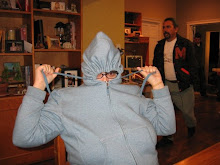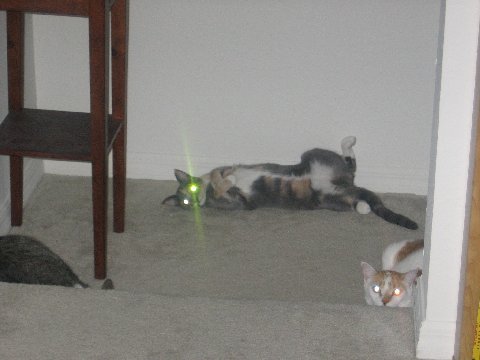 Well, I don't know what's gotten into me this holiday weekend, but I both started and finished this book yesterday. Part of it was the ease of reading (it's a middle-grade novel), but I guess I've had some time on my hands, as well.
Well, I don't know what's gotten into me this holiday weekend, but I both started and finished this book yesterday. Part of it was the ease of reading (it's a middle-grade novel), but I guess I've had some time on my hands, as well.I purchased Eggs quite awhile ago from Barnes & Noble. I'd been wanting to read some more middle-grade/YA fiction, since I think it's a "genre" (don't get me started on whether or not it's really its own genre) I could really get into more. There are so many books for younger readers that sound SO GOOD. So this book was an attempt to dip my toe into the middle-grade/YA pool. And, apparently, reading more YA would be good for my numbers too!
Okay. So this book was incredibly sad. I'm not sure if I would react the same way to it if I had read it at a different time, but it just made my heart ache. David, the protagonist, has recently (within the last year) lost his mother. He's living with his father and paternal grandmother and trying to cope with the loss. He's in the bargaining stage of grief - if he doesn't break any rules, his mom will come back; if he doesn't ever see the sun come up, she'll return. David hasn't made any new friends in his new town and is having trouble adjusting...until he meets Primrose. Her mother is possibly crazy, a fortune-teller who lives in her own reality, causing Primrose to move out of the house and into an abandoned van in their front yard, just to have a space of her own. David and Primrose form a tight bond, but fight just like siblings. The book details their exploits over one summer as they get to know each other and learn to deal with their losses.
This really isn't one of those books with a major central event - no one is kidnapped, murdered, raped, etc. David's mother even dies off camera. It's a book about how children deal with loss, how they come to terms with the disappearance of stability, how they learn about and cope with death. I cried as David tried to reason out the WHY of his mother's passing and groped about for a (admittedly lacking) substitute mother.
I would highly recommend this book, especially to families who are learning to cope with some kind of loss. Four and a half out of five Whatevers. I'm really looking forward to reading Spinelli's Stargirl books now. He has a great voice and doesn't condescend to kids, which makes for an enjoyable reading experience for adults too!



